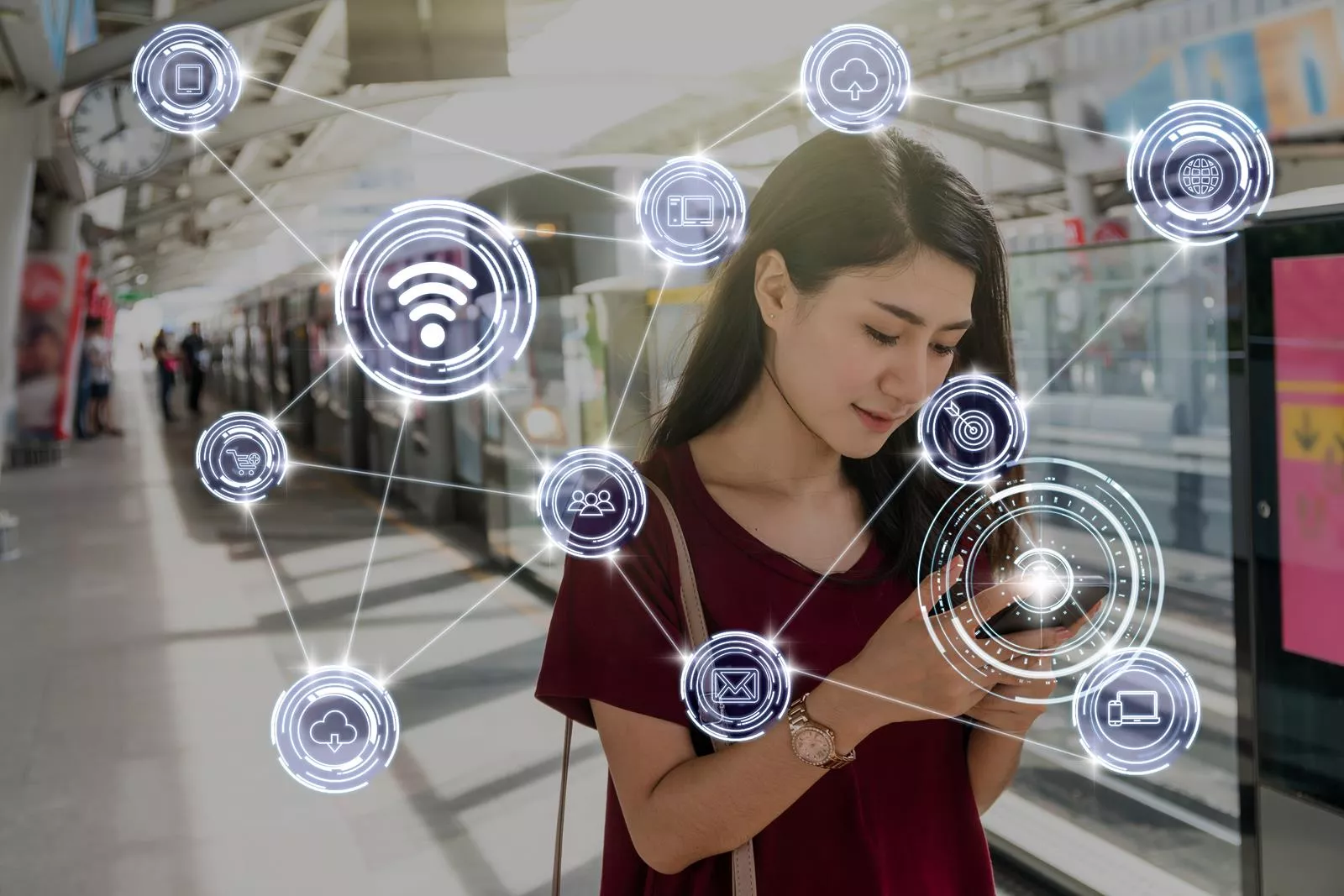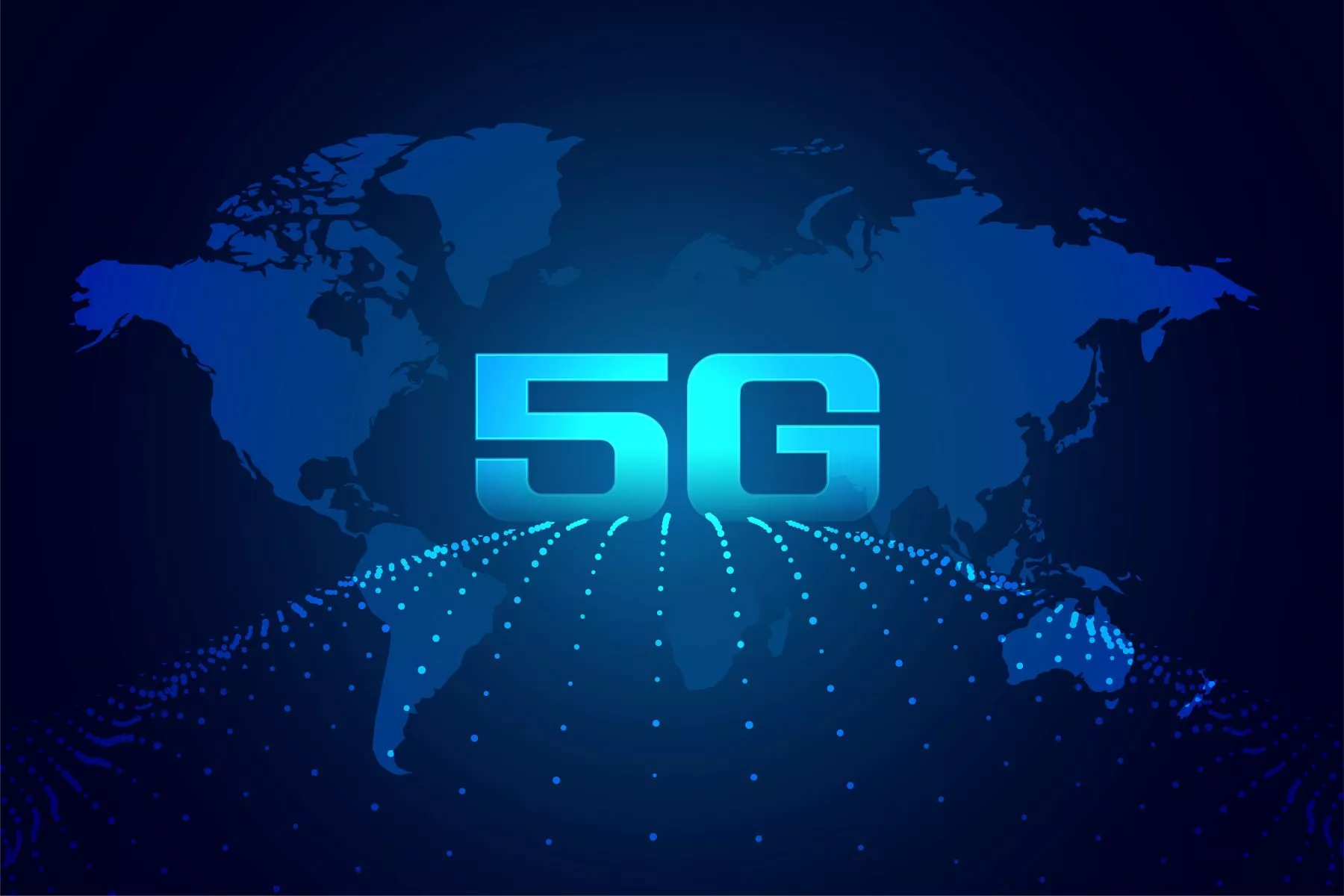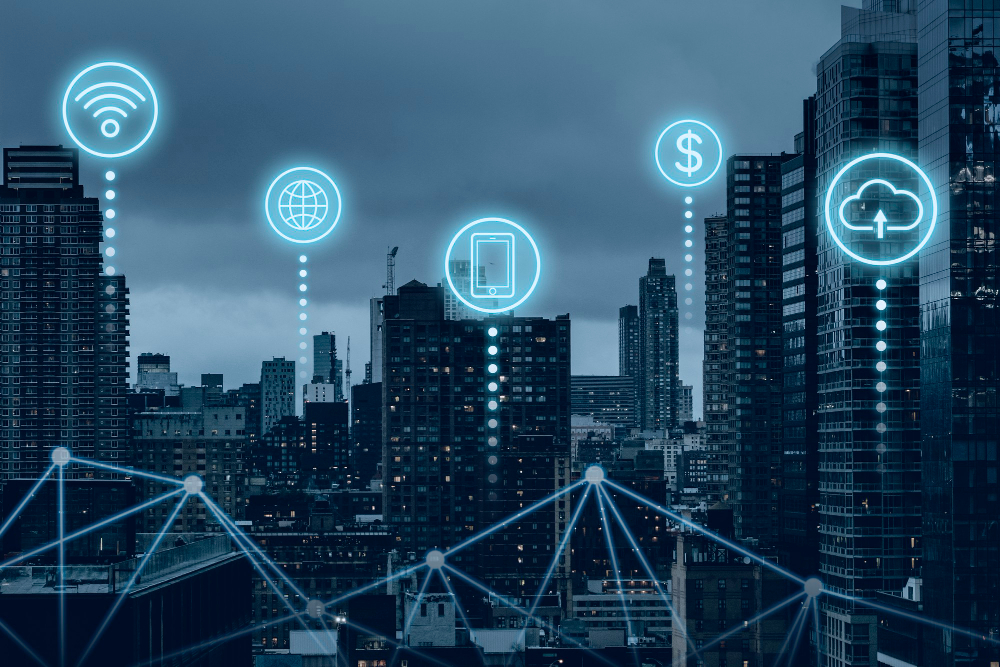
The advancement of 5G is revolutionizing the way we connect and interact with the world. Since the technology's introduction, its promise of greater speed, lower latency, and massive connection capacity has sparked enthusiasm across a variety of sectors.
5G isn't just an evolution of 4G, but a transformative milestone that will redefine global connectivity. As 5G networks expand, they're paving the way for unprecedented innovations: smart cities, autonomous vehicles.
And the Internet of Things (IoT) is just some of the areas that will directly benefit from the advanced infrastructure offered by 5G. More than that, it will be a key enabler for more robust and sustainable digital economies.

This article explores how the future of 5G will shape our global connectivity, analyzing its impacts on different sectors, the benefits it offers, and how it is poised to transform society as a whole. Discover the key aspects of this revolutionary technology and what to expect in the coming years.
One of the most impressive features of 5G is its extremely high speedCompared to 4G, it can be up to 100 times faster, allowing for near-instantaneous data transfers. This is crucial in a world where we increasingly rely on streaming services, virtual meetings, and other bandwidth-intensive activities.
Furthermore, the reliability of 5G connections significantly reduces latency. For end users, this means faster response times in online apps and games, as well as greater stability in video calls and live streams. Businesses of all sizes will also benefit, as they will be able to operate critical systems in real time without interruption.
Another important point is 5G's ability to handle millions of simultaneously connected devices. This will enable environments such as airports, stadiums, and large events to become true connectivity hubs, improving the user experience and opening up new opportunities for IoT-based solutions.
The industrial revolution driven by 5G is bringing significant changes to several sectors. In the healthcare sector, for example, telemedicine is becoming more efficient, enabling real-time consultations with high-definition images and even remote surgeries performed by remotely controlled robots.
In the automotive industry, 5G plays a crucial role in advancing autonomous vehiclesThese cars rely on ultra-fast networks to process information in real time, ensuring safety and efficiency. Similarly, smart factories are using 5G to operate automated machines and systems with unprecedented precision.
Sectors such as agriculture and logistics are also being transformed. Sensors connected via 5G networks enable real-time monitoring of crops and inventory, reducing waste and improving productivity. This comprehensive connectivity promises to revolutionize industrial processes and increase economic efficiency.

To the smart cities are one of the greatest examples of how 5G is reshaping global connectivity. This technology enables the implementation of interconnected systems that improve citizens' quality of life and make urban environments more sustainable and efficient.
A practical example is real-time traffic management. Sensors installed on streets and traffic lights, connected to a 5G network, allow vehicle flow to be monitored and signals to be automatically adjusted to reduce congestion. Furthermore, 5G facilitates the collection of energy and water data, helping cities conserve resources and minimize environmental impacts.
This connectivity not only improves urban mobility but also reduces carbon emissions, contributing to a more sustainable future.
The growth of Internet of Things (IoT) depends directly on 5G. Smart devices like thermostats, locks, security cameras, and appliances require fast, reliable connections to function seamlessly. 5G provides the infrastructure needed for these devices to communicate seamlessly.
Beyond the home, 5G will power IoT in sectors such as healthcare, transportation, and agriculture. Sensors on farms can transmit real-time weather and soil data, while connected medical devices can remotely monitor patients, sending instant alerts to doctors in case of emergencies.
The integration of 5G and IoT also favors the development of wearable technologies, such as smartwatches and smart glasses. These devices gain more advanced functionality thanks to the increased processing and data exchange capacity provided by 5G.
Despite all the benefits, the implementation of the 5G faces challenges. Complex infrastructure and high costs are significant obstacles, especially in more remote regions. Furthermore, issues related to data privacy and security are at the forefront of discussions as more devices and systems connect to these networks.
However, the outlook is promising. Governments and companies are investing heavily to expand 5G coverage and make it more accessible. Furthermore, advances in complementary technologies, such as artificial intelligence and cloud computing, are helping to maximize 5G's potential.
It's believed that in the coming years, 5G will be crucial for enabling emerging technologies such as 6G and quantum computing. These innovations will continue to shape global connectivity, bringing even greater benefits to society.
O future of 5G 5G is just beginning, but its impact is already evident in several areas. From accelerating IoT to creating smart cities, this technology promises to transform global connectivity and drive advances in virtually every sector of society. Despite the challenges, 5G's potential is limitless.
As this infrastructure expands and evolves, it will redefine the way we work, live, and connect. Whether at home, at work, or on city streets, 5G is the foundation of a more connected and efficient future. Invest time in understanding how it works and its benefits, as this will be the foundation of the next technological revolution.